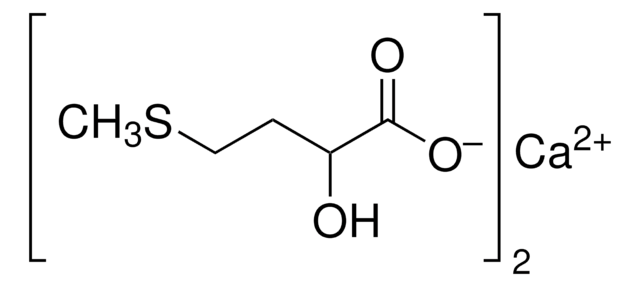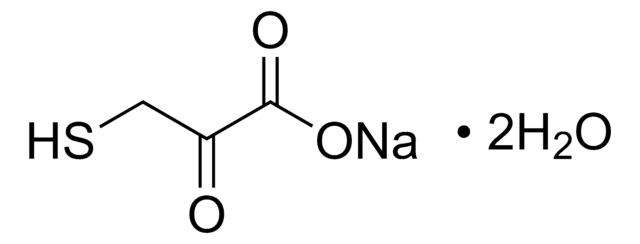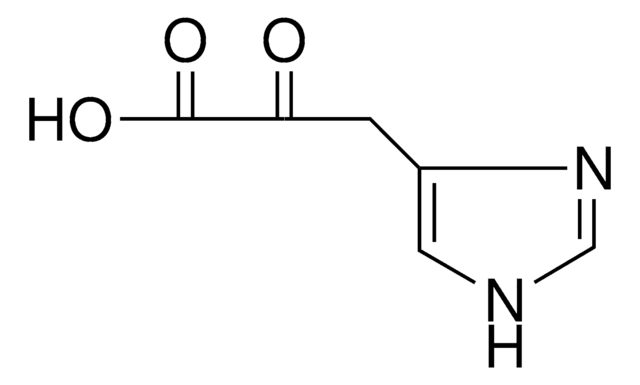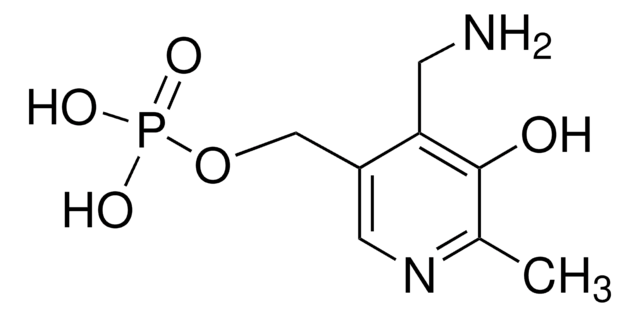K6000
α-Keto-γ-(methylthio)butyric acid sodium salt
≥97%
Sinónimos:
4-Methylthio-2-oxobutanoic acid sodium salt, 4-Methylthio-2-oxobutyric acid sodium salt, KMBA
About This Item
Productos recomendados
Quality Level
assay
≥97%
storage temp.
2-8°C
SMILES string
[Na].CSCCC(=O)C(O)=O
InChI
1S/C5H8O3S.Na/c1-9-3-2-4(6)5(7)8;/h2-3H2,1H3,(H,7,8);/q;+1/p-1
InChI key
IFSCKRWNXKWTLR-UHFFFAOYSA-M
Categorías relacionadas
General description
Application
- Measuring antioxidant capacity using the ORAC and TOSC assays.: This study details the use of α-Keto-γ-(methylthio)butyric acid sodium salt in assessing antioxidant capacity through ORAC and TOSC assays, emphasizing its utility in metabolic and chemical synthesis research (Garrett AR et al., 2010).
signalword
Warning
hcodes
Hazard Classifications
Eye Irrit. 2 - Skin Irrit. 2 - STOT SE 3
target_organs
Respiratory system
Storage Class
11 - Combustible Solids
wgk_germany
WGK 3
flash_point_f
Not applicable
flash_point_c
Not applicable
ppe
dust mask type N95 (US), Eyeshields, Gloves
Elija entre una de las versiones más recientes:
Certificados de análisis (COA)
¿No ve la versión correcta?
Si necesita una versión concreta, puede buscar un certificado específico por el número de lote.
¿Ya tiene este producto?
Encuentre la documentación para los productos que ha comprado recientemente en la Biblioteca de documentos.
Los clientes también vieron
Nuestro equipo de científicos tiene experiencia en todas las áreas de investigación: Ciencias de la vida, Ciencia de los materiales, Síntesis química, Cromatografía, Analítica y muchas otras.
Póngase en contacto con el Servicio técnico

















